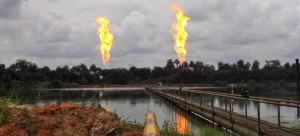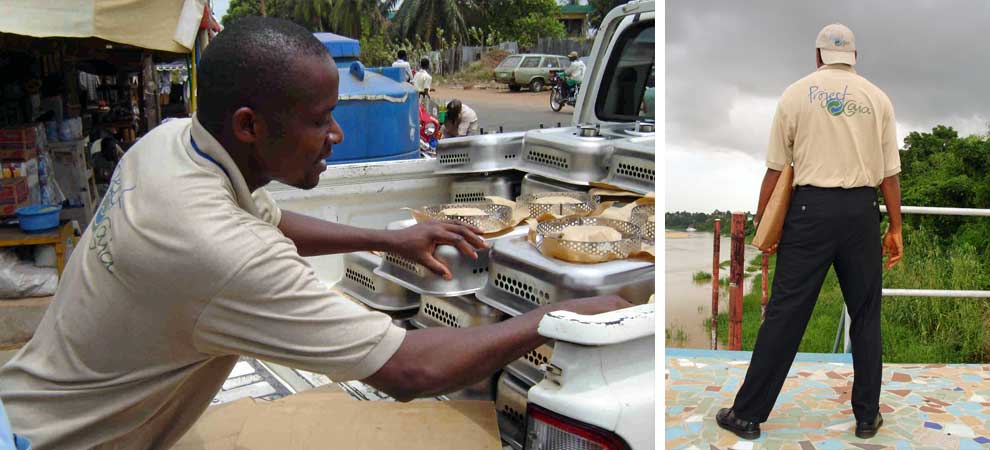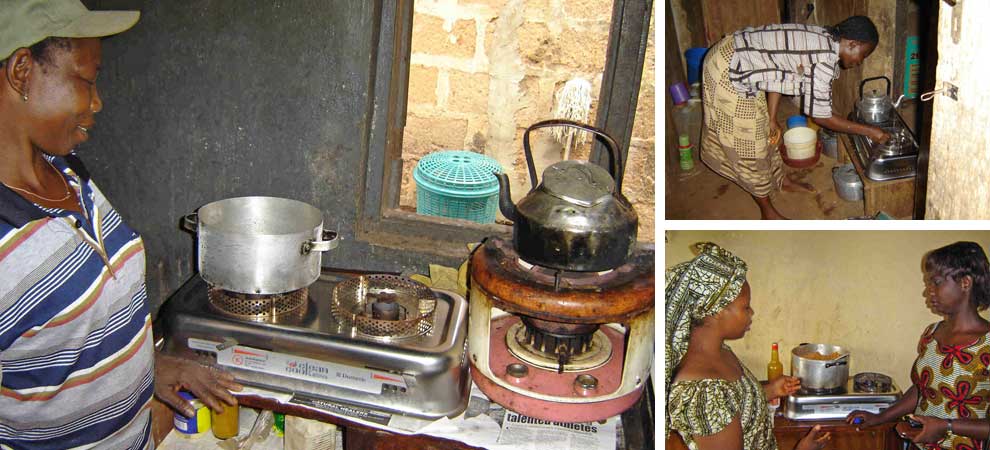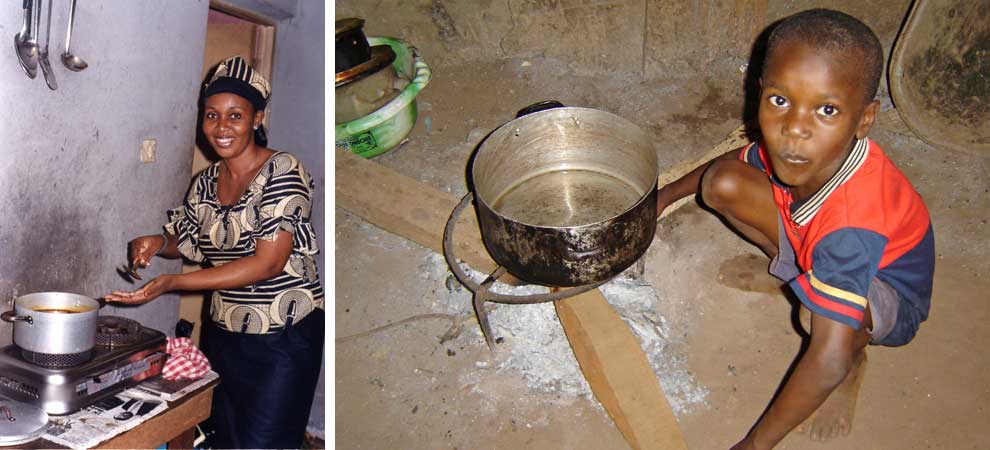Killer Kerosene
Since few are able to afford LPG, nearly a quarter of all Nigerians settle for kerosene fuel. Held under pressure, kerosene is extremely volatile and has received the name “Killer Kerosene” because of the number of deaths and burns it has caused.
Project Gaia has introduced a fuel that, unlike kerosene and LPG, cannot explode and is much safer to use in households.
Alcohol (ethanol and/or methanol) CleanCook stoves were well-liked and used by households in Project Gaia’s Nigerian studies. The stoves were hugely successful- they reduced all smoke, were used cleanly and safely inside the homes, and were suitable to use in households with young children.
The Burning Issue
Urgently needed energy is going up in flames every day through gas flaring for oil extraction, a huge contributor to global warming. If all this wasted gas could be captured and turned into methanol, 100 million additional stoves would be sustainably supported each year.
By 2050 Nigeria is expected to outgrow the population of the USA. The market for cookstoves- and more importantly, cooking fuels- is huge. Spurring both ethanol and methanol production will create local jobs, help give farmers new markets, and be locally sourced.
A Way Forward
Currently, together with its Nigerian partner, Project Gaia Prospects Limited, Project Gaia is exploring a new clean energy frontier in West Africa. By working together with local private sector partners to develop Nigerian ethanol and cookstove supply chains, Project Gaia is aiming to effectively penetrate local cooking markets and replicate micro distillery projects across the country.
In 2015, Project Gaia signed a partnership agreement with Shell Nigeria Exploration and Production Company to launch a clean cooking program with 2,500 stoves.
Projects:
Delta state, methanol cookstoves, 2003
Delta state, methanol cookstoves, 2007
Equator Fuel Project, 2012 – present
Fact: Annually, around 137 billion cubic meters of gas is flared globally. Nigeria alone emits 20 billion cubic meters, producing almost 45% of all Africa's greenhouse gas emissions. This could create enough methanol for every household to cook cleanly throughout Africa.
About Nigeria
- Population | 169 million
- Income | $3.35 per day
- 70% burn solid fuels
- 6.2% have access to clean fuels
- 79% deforested
Our Work
- Methanol Study
- Health Study
- Ethanol Stove Study
- Commercialization
- Risk Assessment
- Supply Chain Mapping
- Microdistillery Study




